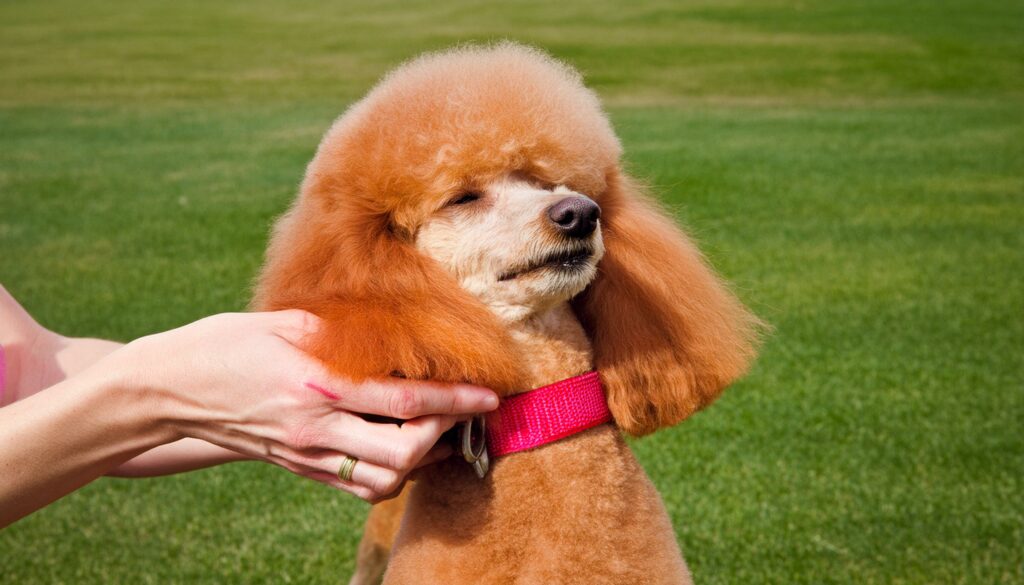Poodles, with their distinctive curly coats and graceful demeanor, are often misunderstood when it comes to their temperament. One prevalent misconception surrounding this breed is their supposed aggressiveness. In this comprehensive guide, we’ll delve into the temperament of Poodles, dispel common myths, and provide valuable insights into raising a well-behaved Poodle companion.
Understanding Poodle Breeds
Poodles come in various sizes, including standard, miniature, and toy. Despite their size differences, they share common traits such as intelligence, loyalty, and agility. Understanding the nuances of each Poodle breed is crucial in deciphering their behavior accurately.
Common Misconceptions about Poodles
One of the most enduring myths about Poodles is their perceived aggressiveness. This misconception often stems from a lack of familiarity with the breed and its unique characteristics. However, the reality is far from this stereotype.
The Importance of Temperament in Dog Breeds
Temperament plays a pivotal role in defining a dog’s behavior and disposition. It is influenced by a myriad of factors, including genetics, environment, and upbringing. Recognizing the significance of temperament is essential in understanding the true nature of Poodles.
Debunking the Myth of Poodle Aggressiveness

Origins of the Misconception
The misconception of Poodles being aggressive traces back to their historical role as hunting dogs. However, over time, they have evolved into beloved companions cherished for their friendly and sociable nature.
Factors Influencing Temperament
Genetics
While genetics contribute to a Poodle’s predisposition towards certain behaviors, it does not solely dictate their temperament. Poodles exhibit a wide range of personalities, each shaped by their unique genetic makeup.
Environment and Upbringing
The environment in which a Poodle is raised plays a significant role in shaping its behavior. Positive experiences, socialization with humans and other animals, and proper training are crucial in nurturing a well-adjusted Poodle.
Training and Socialization
Effective training methods and early socialization are paramount in fostering desirable behaviors in Poodles. Positive reinforcement techniques, consistency, and patience help instill obedience and curb any potential aggressive tendencies.
Understanding Poodle Temperament
Characteristics of Poodle Temperament
Intelligence
Poodles are renowned for their intelligence and problem-solving abilities. Their keen intellect makes them responsive to training and eager to please their owners.
Affectionate Nature
Contrary to popular belief, Poodles are affectionate and devoted companions. They form strong bonds with their families and thrive on companionship and affection.
Playfulness
Poodles have a playful and energetic disposition. They enjoy engaging in interactive games and activities, making them excellent companions for families and individuals alike.
Alertness
Poodles possess a natural sense of alertness, which makes them vigilant watchdogs. However, their alertness does not translate into aggression towards strangers, as they are typically friendly and welcoming.
Factors Affecting Poodle Behavior
Breed Variations
While all Poodles share common traits, such as intelligence and sociability, there may be slight variations in temperament among different sizes and lines. However, these differences are minor, and all Poodles are known for their amiable nature.
Individual Differences
Like humans, each Poodle has its unique personality and temperament. Factors such as genetics, early experiences, and socialization contribute to shaping their individual behavior.
Environmental Factors
The environment in which a Poodle lives influences its behavior significantly. Providing a safe and nurturing environment, along with ample opportunities for exercise and mental stimulation, contributes to a happy and well-balanced Poodle.
Tips for Raising a Well-Behaved Poodle
Early Socialization
Exposing a Poodle to various people, animals, and environments at a young age helps them develop confidence and adaptability. Early socialization lays the foundation for positive interactions and prevents fear-based aggression.
Consistent Training Methods
Consistency is key when it comes to training a Poodle. Using positive reinforcement techniques, such as treats and praise, reinforces desired behaviors and strengthens the bond between the owner and their canine companion.
Positive Reinforcement
Rewarding good behavior encourages repetition and fosters a harmonious relationship between the owner and their Poodle. Consistent positive reinforcement helps instill obedience and reinforces the desired conduct.
Providing Mental and Physical Stimulation
Poodles thrive on mental and physical stimulation. Engaging them in activities such as obedience training, agility courses, and interactive play keeps them mentally sharp and physically fit.
Conclusion
In conclusion, Poodles are not inherently aggressive dogs. While they may have been bred for specific purposes in the past, they have evolved into affectionate, intelligent, and sociable companions. By understanding the factors that influence their temperament and providing proper care, training, and socialization, owners can enjoy the company of a well-behaved and loving Poodle.
Unique FAQs
Are Poodles good with children?
Poodles are generally excellent with children, but supervision and proper socialization are essential to ensure positive interactions and prevent any potential mishaps.
How much exercise do Poodles need?
Poodles are energetic dogs that require regular exercise to stay healthy and happy. Daily walks, playtime, and mental stimulation are essential for their well-being.
Are Poodles hypoallergenic?
Yes, Poodles are considered hypoallergenic because they shed minimally, making them suitable companions for individuals with allergies to pet dander.
Do Poodles get along well with other pets?
With proper socialization, Poodles can coexist harmoniously with other pets in the household. Early introductions and positive interactions are key to fostering good relationships.
What health issues are common in Poodles?
While generally healthy, Poodles may be prone to certain genetic conditions such as hip dysplasia and progressive retinal atrophy. Regular veterinary check-ups and a balanced diet help maintain their health and well-being.
